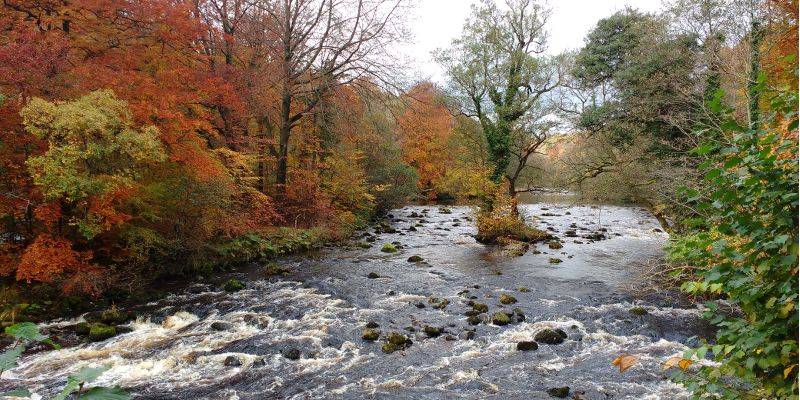
A new £6 million project led by the University of Leeds is predicted to bring a £50 million benefit to the Yorkshire economy by reducing the costs and impact of water-related threats to the region.
Bringing together partners from across the region and using existing research funded by the Natural Environment Research Council (NERC), the team will look to join up ways of improving water quality, resilience to floods and droughts, carbon storage and biodiversity.
In doing so, the project will make more efficient uses of resources and enable planning across the whole catchment area, bringing both economic and societal benefits.
Work on the project, called Yorkshire Integrated Catchment Solutions Programme (iCASP), will begin in March 2017.
Professor Joseph Holden, leader of Yorkshire iCASP and Director of the University’s research group water@leeds, said: “By creating a region that is better able to deal with a more variable climate, and develop integrated solutions to floods, droughts, water quality and carbon storage it will become an area that attracts investment as people and their businesses opt to live and work in an area that has adapted to the severe effects of environmental change, with improved quality of life.”
Activities in Yorkshire iCASP will focus on the Yorkshire Ouse basin – encompassing the cities of Leeds, Bradford, York and Sheffield, as well as the rivers Aire, Calder, Derwent, Don, Swale, Wharfe, Ure and Nidd and their tributaries – but the findings will be applicable nationwide.
The Yorkshire Ouse basin is home to 6.7% of the UK population and 30% of the Northern Powerhouse. The region includes a variety of different environments, from large urban areas to lowland agriculture and sparsely populated uplands, including National Parks and Areas of Outstanding Natural Beauty.
Key objectives of Yorkshire iCASP include reducing drought and flood risk through improved integration between weather forecasting, land management and water resource management; improvements in water quality for both human water supply and rivers; and better management of soils for improved regional food security and carbon storage.
Professor David Hodgson, deputy leader of the Yorkshire iCASP team from the School of Earth and Environment at the University of Leeds, said: “Working with partners in the region, we will be able to use our environmental science expertise to identify, test and improve catchment solutions that increase the resilience of towns, cities and our major rural agricultural economy to water-related threats.”
Yorkshire iCASP has already attracted £1.3 million in funding from 16 regional stakeholders – spanning government, businesses and charities – in addition to a grant of £4.7 million from NERC. The Yorkshire iCASP team hopes to bring more stakeholders on board, bringing together a diverse range of expertise and resources to tackle water-related problems.
Professor Holden concluded: “Yorkshire iCASP will enable us to join forces with organisations across the region to create a springboard for the future, moving beyond a region worried about water-related problems, to one that leads the world in integrated catchment solutions.
“It will show how a region can work together to create joined up water solutions, while ensuring thriving rural and urban communities.”
- For enquiries about getting involved in Yorkshire iCASP please email iCASP@leeds.ac.uk. Further information is available on the project’s website.
Further information
The Natural Environment Research Council (NERC) has provided £4.7 million to fund Yorkshire iCASP. The projects are funded under a new NERC scheme called the Environmental Science Impact Programme, which aims to bring research organisations, businesses, policymakers and the third sector together to use their extensive knowledge, experience and contacts to boost regional economic growth.
Yorkshire iCASP currently has 16 Springboard Partners: Yorkshire Water, Arup, Leeds City Region Local Enterprise Partnership with the Local Nature Partnership, National Farmers Union, Leeds City Council, City of York Council, City of Bradford Metropolitan District Council, UK Met Office, Environment Agency, Natural England, Yorkshire Wildlife Trust, Dales to Vales Rivers Network, IUCN UK Peatland Programme, JBA Trust, Pennine Prospects and LEAF (Linking Environment and Farming).
The project is led by the University of Leeds, with contributions from researchers from the Universities of York and Sheffield.
Professor Joseph Holden and Professor David Hodgson are available for interview. Please contact Sarah Reed, Media Relations Officer at the University of Leeds, on 0113 343 4196 or s.j.reed@leeds.ac.uk